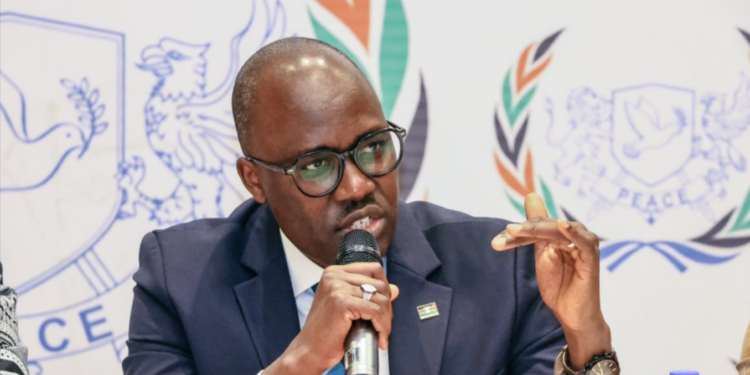Kenya’s government is seeking information and accountability from the Ford Foundation regarding recent grants to civil society organizations, rather than accusing the foundation of wrongdoing, a senior official has emphasized.
In an interview with Citizen TV, Dr. Korir Sing’oei, Principal Secretary for Foreign Affairs, clarified the government’s position following a recent letter sent to the Ford Foundation requesting details on grants totaling KES 752 million disbursed between April 2023 and June 2024.
“It’s a request for information, it’s a request for accountability, and it’s a very respectful conversation,” Dr. Sing’oei stated, addressing concerns that the government was targeting civil society organizations or stifling dissent.
The move comes amidst heightened political tensions in Kenya, with recent protests against proposed tax measures in the Finance Bill 2024. Some civil society groups have been active in organizing these demonstrations, leading to questions about their funding sources.
Dr. Sing’oei emphasized the significant role of non-governmental organizations (NGOs) in Kenya’s economy, noting that the sector received KES 196 billion in 2023. This figure, he pointed out, is nearly half of what the central government allocates to county governments in shareable revenue annually.
The Principal Secretary highlighted the unique status of the Ford Foundation in Kenya, explaining that it enjoys “quasi-diplomatic” privileges, including tax exemptions for staff and duty-free importation of goods and services. This special status, governed by a cooperation agreement dating back to 1968, obligates the foundation to provide information to the government upon request.
“We have an excellent relationship with the Ford Foundation as the government and the Kenyan people, a relationship that has been in place for the last 60 years,” Dr. Sing’oei said.
However, he expressed concern about the potential misuse of funds by some grant recipients, particularly in light of recent protests. “We are seeing that these protests are powered quite a great deal of course by young people, but they’re also powered very strongly and aggressively by these Civil Society organizations,” he noted.
The government’s inquiry aims to ensure that the Ford Foundation is adequately monitoring its grantees and that the funds are not being used for lobbying activities, which would violate U.S. law governing the foundation’s operations.
Dr. Sing’oei rejected suggestions that the government was seeking a scapegoat for the recent unrest or attempting to stifle civil society. “Is there a problem in asking for accountability? How does that constitute stifling?” he questioned.
The Principal Secretary acknowledged that the government had underestimated public reaction to the proposed tax measures in the Finance Bill 2024. He outlined steps taken by President William Ruto to address these concerns, including vetoing the bill, implementing austerity measures, and reshuffling the cabinet.
“The president took the unprecedented decision to dismiss his cabinet…to accept the resignation of the commissioner of police in view of the criticism around the conduct of the police,” Dr. Sing’oei said, describing these actions as good faith efforts to respond to public concerns.
The interview also touched on broader issues of government spending and foreign policy. Dr. Sing’oei discussed new austerity measures, including restrictions on foreign travel, which will particularly impact the Foreign Affairs department. He indicated that future international engagements would involve smaller delegations and greater use of technology for virtual participation.
“We will fundamentally really reduce the delegations to bare bone numbers,” he stated, adding that the government would carefully consider which events require the President’s personal attendance and which could be handled by other officials.










